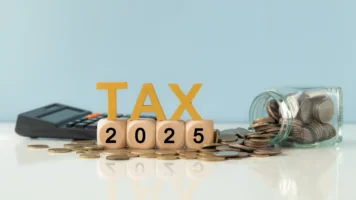Can I Borrow Money From My Super?
Your superannuation (super) is likely one of the most significant assets you’ll accumulate over your working life in Australia. Superannuation serves as a financial safety net for retirement, helping to ensure you have enough to live comfortably once you stop working. However, there may be times when you’re facing financial difficulty and wondering whether or not you can borrow money from your super just like you would for a small loan. We’ll dive into the rules surrounding early access to super, when it might be allowed, and what options you may have.
Overview:
- Can I borrow money from my super fund?
- Can I access money from my super?
- What are the negatives of withdrawing super?
- Super FAQs
Can I borrow money from my super fund?
Strictly speaking, you cannot borrow money directly from your super. Superannuation is designed to be a long-term investment for retirement, and legislation places strict rules on accessing these funds early. The core principle behind these regulations is to ensure that individuals don’t deplete their retirement savings prematurely.
Can I access money from my super?
While it’s not possible to borrow money from your super, there are specific situations where early access to your super may be possible. It’s important to understand that while this means you may be able to access your super, this does not involve directly borrowing from your super.
Generally, you can access your super any time once you reach your preservation age (between 55 and 60, depending on your birth year) and retire, or once you turn 65, even if you’re still working.
When and how can I access money from my super early?
The ability to access your super early is strictly regulated and often requires you to meet stringent criteria. Here are some key cases where early access may be granted:
1. Severe financial hardship
If you’re experiencing severe financial hardship, you may be able to access some of your super early. The Australian Tax Office (ATO) defines severe financial hardship as having been receiving government income support payments for at least 26 consecutive weeks and being unable to meet reasonable and immediate family living expenses.
If you qualify, you can withdraw between $1,000 and $10,000 from your super in a 12-month period. Keep in mind that not all super funds allow this, so you’ll need to check with your specific provider.
2. Compassionate grounds
In some instances, you may access your super for compassionate reasons, even if you’re not experiencing severe financial hardship. Common compassionate grounds include:
- Paying for medical treatment or medical transport for you or a dependent.
- Paying for home modifications due to a disability.
- Preventing foreclosure on your home.
- Covering funeral costs for a dependent.
To access your super on compassionate grounds, you need to apply through the ATO, and the decision will be based on the evidence you provide, such as medical certificates or bank notices.
3. Terminal illness
Typically, if you are diagnosed with a terminal medical condition, you can access your superannuation tax-free. Two registered medical practitioners (one of whom must be a specialist) must certify that you have a life expectancy of less than 24 months. The process for accessing your super under these circumstances is typically faster, and there is no limit on how much you can withdraw.
4. Permanent or temporary incapacity
If you’re permanently or temporarily unable to work due to a physical or mental condition, you may be able to access your super early. You’ll need certification from at least two medical practitioners confirming that you are unlikely to ever work again.
5. First Home Super Saver Scheme (FHSSS)
Though not strictly “borrowing” from your super, the First Home Super Saver Scheme (FHSS) allows first-time home buyers to withdraw voluntary super contributions to use toward a house deposit. This scheme enables eligible individuals to make extra contributions into their super and then withdraw up to $50,000 (or $100,000 for couples) when they’re ready to purchase their first home.
Under this scheme, the money you withdraw consists of your personal voluntary contributions (up to $15,000 per year) plus any associated earnings, minus tax. It’s important to remember that any withdrawals from your super can be taxed and you should factor this into your calculations when deciding if it is worth it.
What are the negatives of withdrawing super?
Withdrawing your superannuation early can offer short-term financial relief, but it may come with significant long-term drawbacks that could impact your financial future, including:
- Reduced retirement savings and lost compound interest
- Higher tax rates on early withdrawals
- Loss of insurance coverage linked to your super account
- Disruption of long-term investment growth
- Increased reliance on the Age Pension in retirement
- Potential for long-term financial stress
Other alternatives to accessing super
Regardless of whether you’re facing financial hardship or you’re battling illness, it can be confusing and costly to access your super early. It can be a good idea to consider alternative options, such as:
- Charities and non-profit organisations
- Government assistance programs including state and territory programs
- Centrelink
- Crowdfunding
- Community health services
- Borrowing from friends and family
- Consulting with a financial counsellor
- Taking out a small loan
Need some quick cash to cover emergency bills? Swoosh has you covered.
When expenses get too high, sometimes you just need that little bit extra to get you through to the next payday. At Swoosh we offer small loans from $2,200 to $5,000 for whatever you need! With fast, easy applications, we take the stress out of personal loans so you can focus on what matters most. Apply online today.
Super FAQs
Can you use super to pay off debt?
You can use your super to pay off debt, but only under specific circumstances such as severe financial hardship or compassionate grounds. These conditions are strictly regulated, and early access to super should be considered carefully due to the long-term impact on your retirement savings.
How much super should I have at 40?
By age 40, a common benchmark for superannuation is to have around $150,000 to $200,000 in your account, depending on your income and retirement goals. This helps ensure you’re on track for a comfortable retirement. However, individual targets can vary based on lifestyle, expenses, and financial plans.
Can I use my super to pay off my mortgage?
You generally can’t use your super to pay off your mortgage unless you qualify for early access under specific conditions, such as severe financial hardship or compassionate grounds. Otherwise, super is intended to be preserved for retirement.
How long does it take for the ATO to approve an early super release?
The ATO typically takes up to 14 days to process and approve an early super release application, provided all required documents are submitted. Processing and approval times for paper applications can be up to 28 days. However, processing times can vary depending on individual circumstances, so it’s important to confirm your application’s processing time with the ATO directly.







